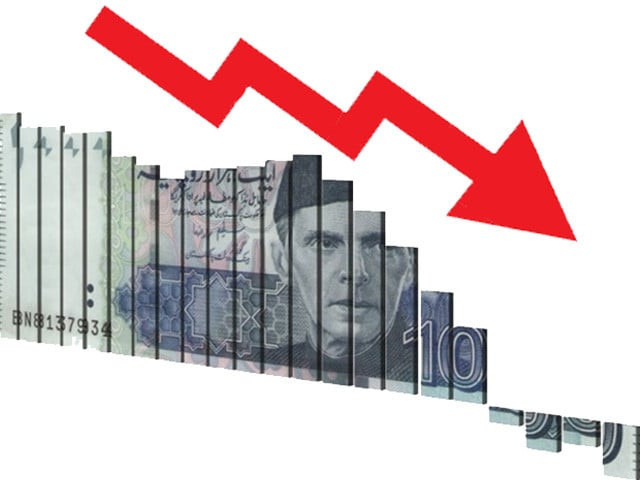Is an interest-free economy possible?
Over the last few years, Pakistan has made significant strides in integrating Islamic banking

The 26th Amendment took a landmark step in reshaping the process of the country's economic structure.
This amendment seeks to withdraw Riba (interest rates) from the economy by January 1, 2028. Clause (f) of Article 38, which emphasizes the "Promotion of social and economic well-being of people," aims toward creating an economy aligned with Islamic principles.
Pakistan faces a serious challenge in this regard: to transform from interest-based systems into a completely Sharia-compliant and interest-free economy. Islamic banking has already started integrating into Pakistan's financial structure, but a complete transformation into an interest-free model requires major changes in the country’s economic sectors.
Over the last few years, Pakistan has made significant strides in integrating Islamic banking. Faysal Bank Ltd has gone from a conventional bank to an Islamic one. Currently, Islamic banking constitutes 20% of Pakistan's finance sector, a huge shift toward Shariah-compliant financial services.
Historical measures to "Islamize" the economy were undertaken during the period of General Zia-ul-Haq, with the establishment of interest-free institutions ranging from National Investment Trusts and Participation Term Certificates, both in principle compatible with tenets of what is described as Islamic finance.
The latest initiatives by SBP to develop its Islamic banking sector include the Mudarabah-based OMO-Injection launched recently and the standing ceiling facility that was introduced in 2021. Another significant step taken by the SBP in 2022 relates to the licensing framework for digital banking that is in line with Islamic banking alternatives.
However, is an interest-free economy desirable for Pakistan? The benefits that are passed on from an Islamic bank are, indeed, noteworthy. It encourages ethical investments and promotes risk-sharing and investment stability.
According to these principles, speculative transactions are avoided, and social responsibility takes center stage so that financial activities complement the overall good of society. In addition, an Islamic model of banking tends to employ a cautious approach in matters of cost-benefit analysis, which serves as an antidote to financial instability.
These features make Islamic banking an attractive option, especially for an emerging nation like Pakistan, which experiences economic instability and vulnerability. Hence, from the normative view, an interest-free economy could strengthen the economy, social well-being, and financial stability.
Is an interest-free economy achievable in Pakistan? Though it is allure, the complete change towards an interest-free financial system poses great practical problems. Although the target of zero interest for the economy of Pakistan by 2028, as envisaged in the legislative amendment now enacted, appears very ambitious with the existing structural limitations, a complete shift to an interest-free economic arrangement would need a more comprehensive economic reform which is not visualized through legislation amendments only.
This shift requires careful preparation, and the country's financial institutions have to develop an extensive set of Shariah-compliant tools to effectively implement policies for regulating the economy under conditions without conventional interest rates.
One of the critical challenges for Pakistan will be macroeconomic stability, in terms of price stability, as this is central to public policy to promote sustainable economic growth. At present, the SBP relies on policy rates to maintain price stability. However, a transition to a zero-interest economy would require new instruments for managing inflation and liquidity rather than conventional interest-based policy instruments.
For example, SBP will need an instrument to manage surplus liquidity and quite independently guide expectations concerning inflation. The creation of Shariah-compliant policy instruments poses significant hurdles that require careful collaboration between financial institutions, regulatory bodies, and policymakers to ensure that economic instability in the transition process is not overtaken.
In addition, the availability and demand for credit within Pakistan are further affected by numerous socio-economic determinants, which comprise the nation's financial governance. Prolonged fiscal shortfalls and a fragile financial condition render Pakistan a borrower characterized by elevated risk, necessitating that lenders impose interest rates to mitigate the inherent risks involved.
Moreover, in instances where loans become non-performing, lenders encounter protracted and intricate legal procedures to reclaim their invested capital, thereby exacerbating their exposure to risk.
Consequently, this reliance on interest-driven lending is intricately linked to Pakistan's wider economic weaknesses. Transition to an interest-free model would not only require switching banking activities from traditional lending to profit-sharing, equity partnerships, and asset-backed financing but also might encounter significant resistance in the transition from the current fiscal appetite of financing fiscal deficits in such a model.
In order to shift toward an interest-free economy, Pakistan will have to undergo a structural change from a consumption-based model to a savings-based model. The country's reliance on debt-financing instead of collective savings breeds a perpetuating cycle of unsustainable debt which leads to interest-bearing loans. The building of an economy that thrives on internal savings rather than external debt is the key to establishing a self-reliant, interest-free financial system.
For this to be possible, policies aimed at boosting savings rates, fanning public trust in financial institutions, and encouraging investment through Shariah-compliant means would be indispensable. The vision of establishing an interest-free economy in Pakistan is both appealing and ambitious; however, achieving this goal poses significant challenges, particularly with the approaching 2028 deadline.
Islamic banking serves as a noteworthy model, highlighting the importance of ethical investments, risk-sharing, and prudent financial practices. Nonetheless, the transition to a fully Shariah-compliant economy necessitates extensive reforms to ensure that fiscal policies, financial frameworks, and societal behaviors are congruent with these principles.
The realization of an interest-free economy in the near future may be impossible without structural reforms and alternative policy instruments. However, continued investment in Islamic banking combined with a shift toward saving-based economic systems will gradually draw Pakistan toward this goal, effectively leading to a financial system finding its foundations based on precepts more resistant to shocks from the economic sphere.
The writer is an independent researcher in geopolitics and economic security
















COMMENTS (2)
Comments are moderated and generally will be posted if they are on-topic and not abusive.
For more information, please see our Comments FAQ